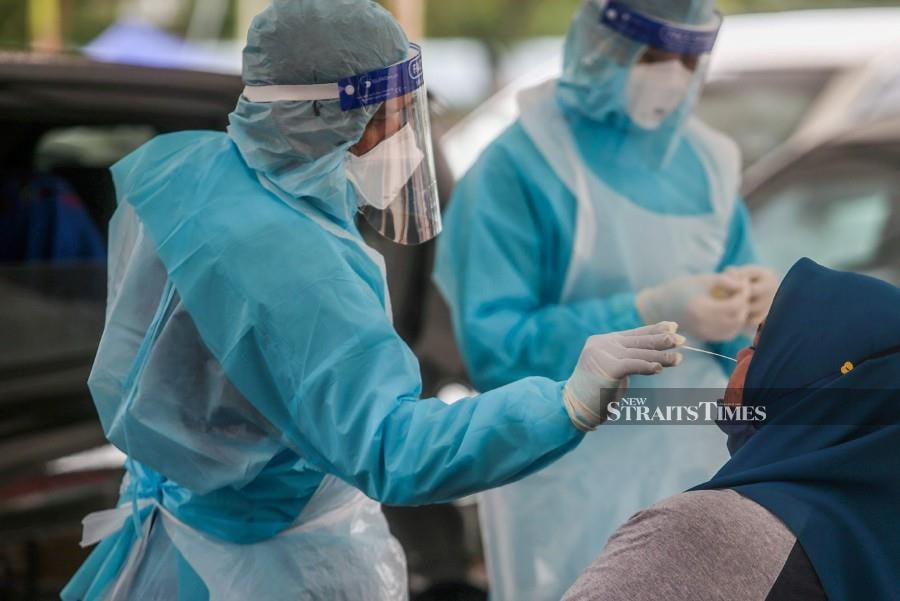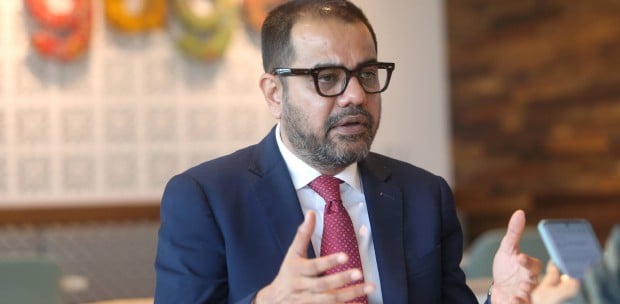KUALA LUMPUR: A group of local researchers developed a new artificial intelligence programme to detect and identify a Covid-19 infection through the sound of a person's cough.
The programme, which is currently in the testing stage of recording and storing cough data samples, is expected to be available in June next year.
The method is reported to have a 90 per cent accuracy and will also detect asymptomatic cases.
Its use does not incur financial costs to users who would only have to record the audio of their coughs on mobile devices, before submitting the clip to the programme's website for analysis.
The results can be obtained within five to 10 minutes.
The programme is developed by a group of researchers from the Institute for Clinical Research (ICR) under the Health Ministry and artificial intelligence (AI) experts from the Swinburne University of Technology Sarawak.
The lead researcher, William Law Kian Boon said, based on overseas researches, asymptomatic cases still experience changes in cough sounds as Covid-19 is an upper respiratory tract infection.
Other ICR researchers involved in the project are its director, Dr Kalaiarasu Peariasamy, Law, Dr Mohd Aizuddin Abdul Rahman, Dr Mohan Dass Pathmanathan, Dr Kuan Pei Xuan, Dr Wong Xin Xi, Lauren Ooi Li Ting as well as Prof Patrick Then, director for the Centre for Digital Futures Swinburne Sarawak.
"These changes (cough sounds) are difficult to detect through hearing tools or traditional methods, but they can be distinguished by a machine learning algorithm, which is part of the AI.
"To detect asymptomatic cases, we record cough sounds from Covid-19 patients and healthy persons then train the algorithm to make a comparison," Law told BH.
Law said data variation could improve the performances of algorithms in Covid-19 screenings even though every person had a different cough sound and that it could also be affected by various factors.
"Every person has a different cough sound. Gender, age, and type of illness are also part of the factors.
"As such, the algorithm needs to be trained with sufficient variations, representing the diversity of sound samples.
"Cases studied can be divided into various groups, such as Covid-19 cases, health person without Covid-19, an asthmatic individual without Covid-19, Covid-19 survivors and others," he said.
He said the beta version of the programme had been developed to carry out processes of recording and storing audio samples.
The research team is currently recruiting volunteers for audio samples. They are targeting to collect 2,400 samples at the Covid-19 Assessment Centre around Kuala Lumpur soon.
Law said to detect Covid-19 using the application, one has to answer a questionnaire on their health status, history, and if they were taking medications.
Also in the list of questions are gender, age and whether they had ever been infected with Covid-19, in addition to their vaccination status.
"The system will then request the user to record a cough audio sample. He or she will need to cough three to five times continuously under 10 seconds to allow the programme to begin its analysis.
"Users need to be in a relatively comfortable and quiet place to ensure the sound recorded is in high quality, as a noisy environment will influence the sound quality," he said.
Users will receive their results within five to 10 minutes via text message.
"If a person is tested positive for Covid-19, he or she must comply with the existing standard operating procedures which are to take an RT-PCR test whether at a government or private health facilities for further action.
"This application can be used as a pre-screening method, we target that it can be accessible by the public in June next year," he said.





